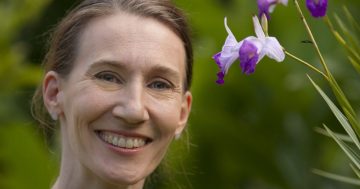Ewen Callaway* says ancient DNA material, collected from the permafrost of northern Greenland, reveals that mastodons and reindeer once roamed through lush forests there.
 Today, the north-eastern tip of Greenland is a lonely, barren place, home to the odd hare and musk ox, and a few hardy plants.
Today, the north-eastern tip of Greenland is a lonely, barren place, home to the odd hare and musk ox, and a few hardy plants.
However, two-million-year-old DNA sequences — the oldest ever obtained — recovered from the frozen soil suggest it was once home to mastodons and reindeer that roamed a forested ecosystem unlike any now found on Earth.
Eske Willerslev, a palaeogeneticist at the University of Copenhagen, who co-led the study, described the ancient-DNA findings as hugely significant.
“No one would have predicted this ecosystem in northern Greenland at this time,” Professor Willerslev said.
A colleague, Love Dalén, of the Swedish Museum of Natural History in Stockholm, agrees.
“It is pretty awesome. Not in a million years would you expect a mastodon up there,” Professor Dalén said.
In 2021, Professor Dalén’s team obtained partial genomes from million-year-old mammoth remains from Siberia, shattering the record for ancient-DNA preservation.
However, he and other scientists suspected that although DNA degrades into ever-shorter fragments over time, even older sequences could be recovered and interpreted — if the right samples could be found.
As it turned out, some of those samples had been sitting in a freezer in Copenhagen since 2006, when Professor Willerslev visited northern Greenland looking for ancient human remains.
While there, the team collected sediment from the region’s Kap København Formation, a 100-metre-thick deposit of frozen mud and sand that built up around two million years ago.
Over the years, Professor Willerslev and his team periodically tested the Kap København sediment, as methods for extracting and sequencing ancient DNA improved.
A couple of years ago, they got their first success. All told, they sifted through more than 16 billion DNA fragments — many from modern micro-organisms that had contaminated the samples — to identify shards of authentic ancient DNA.
“It was a massive sequencing effort,” Professor Willerslev said.
When the team matched these sequences to databases of genomes from modern plants and animals — which sometimes differ substantially from those of the organisms’ ancient relatives — a snapshot emerged of Kap København two million years ago.
Greenland was much warmer then, but the researchers did not expect the DNA sequences to reveal forests of poplar, spruce and yew trees such as those now typically found at much lower latitudes.
Also identified were sedges, shrubs and birch-tree species that still grow in Greenland.
Kap København’s animal life, detailed in sequences probably from reindeer and mastodons — extinct relatives of elephants — as well as rodents, geese and rabbits, held even more surprises.
“Reindeers, according to palaeontologists, should not have survived; they shouldn’t even exist at that time,” Professor Willerslev said.
“Mastodons were thought to have lived in North American forests — their remains have never been found in Greenland.”
Specialist in ancient DNA at the Centre for Anthropobiology and Genomics in Toulouse, France, Ludovic Orlando said you would have expected such gigantic animals to be hard to miss in the fossil record.
“Such findings show the potential of ancient sedimentary DNA to yield surprising insights about past ecosystems,” Professor Orlando said.
Professor Willerslev thinks his team’s work could also say something about how future ecosystems will respond to climate change.
“In these organisms there is an ability to adapt in composition and in range that we don’t understand and we can’t predict,” he said.
*Ewen Callaway is a senior news reporter at the Nature Publishing Group, based in London.
This article first appeared on the Nature website.



